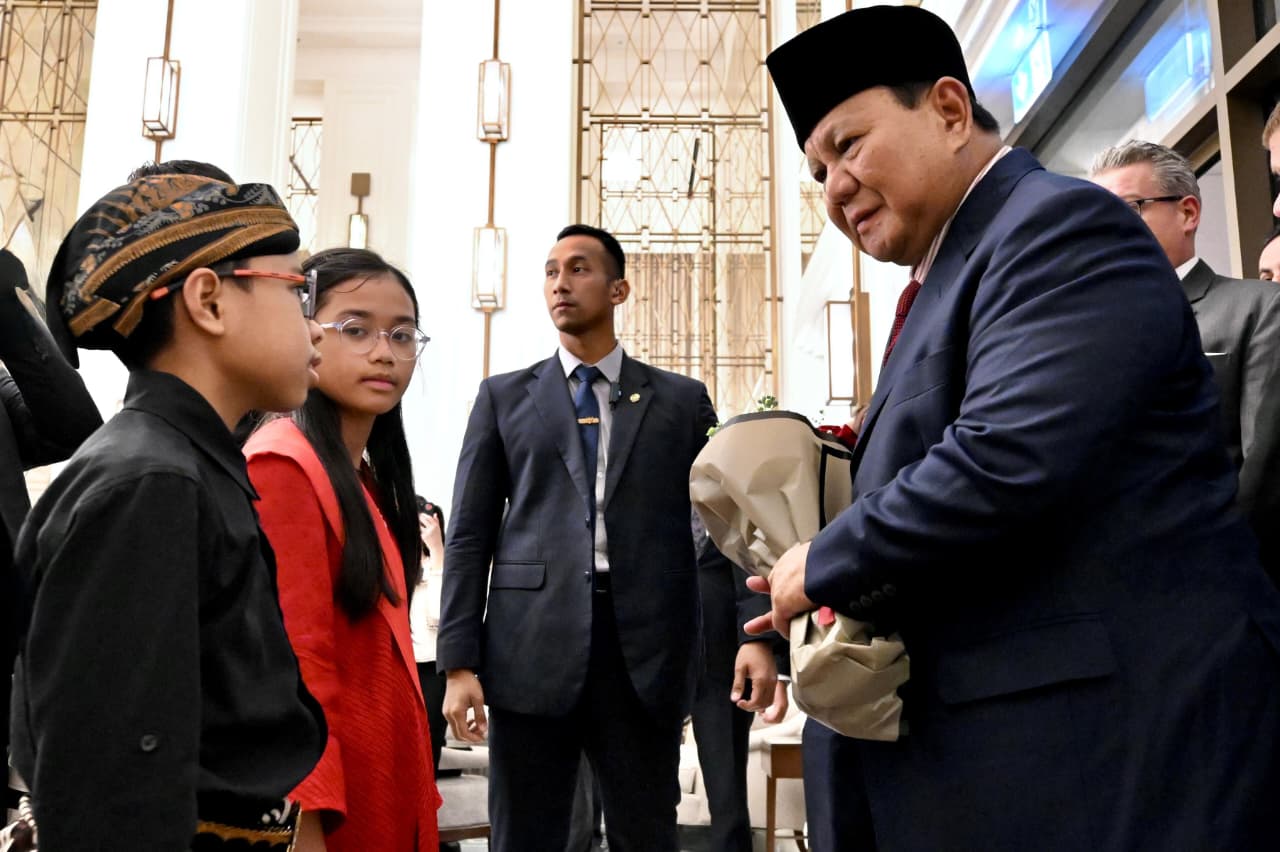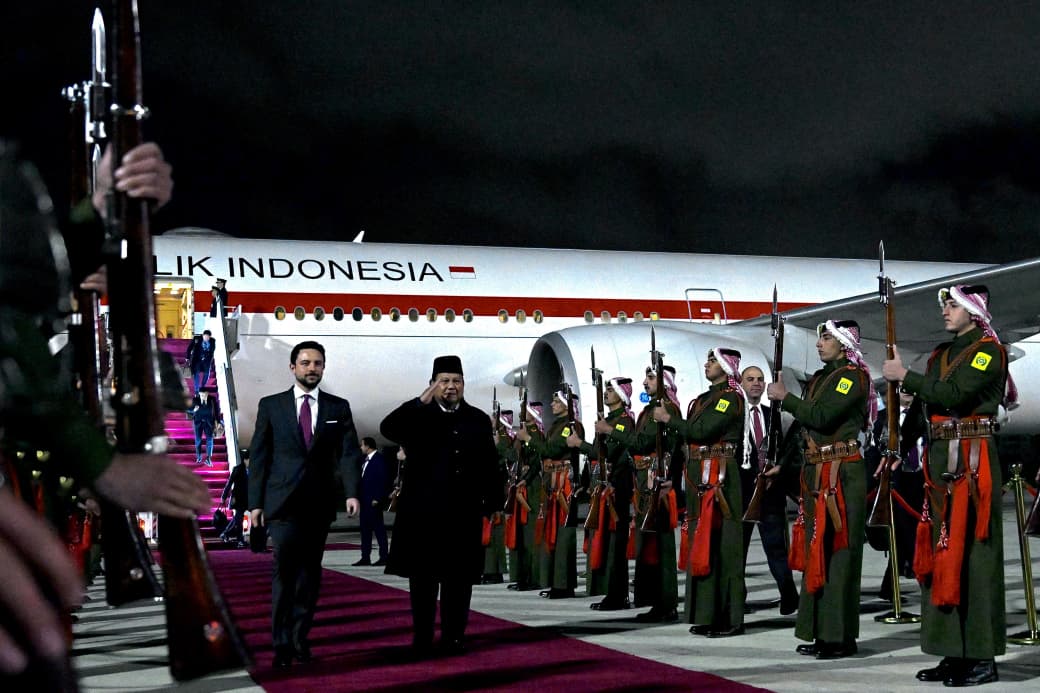Pandemic Situation Improves, Economy Rebounds, Minister Says

Coordinating Minister for Maritimie Affairs and Investment Luhut Binsar Pandjaitan and Coordinating Minister for Economic Affairs Airlangga Hartarto deliver press statement after a limited meeting on public activity restrictions (PPKM) at the Merdeka Palace, Jakarta, Monday (04/04). (Photo: Rahmat/PR)
Improvement of COVID-19 pandemic situation in the country has brought the acceleration of economic recovery, according to Coordinating Minister for Maritime Affairs and Investment Luhut Binsar Pandjaitan.
“Although it had experienced a decline, Indonesia’s economy is able to rise quickly and show a very positive trend since the end of February,” said Luhut in a press statement after a Limited Meeting on the Evaluation of public activity restrictions (PPKM), Monday (04/04), at the Merdeka Palace, Jakarta.
The economic recovery, Luhut continued, could be seen from, among others, the increase of public spending index.
“This can be seen from the spending index from the Mandiri Institute which has increased in all regions, even Bali and Nusa Tenggara provinces have reached their highest levels since the pandemic hit,” he said.
As the pandemic situation improves, people’s activities and mobility have also increased significantly, even reaching the highest level since the pandemic hit Indonesia.
“This shows that the conditions and situation of the pandemic in Indonesia are very well controlled which in the end creates a sense of security and comfort in our society to carry out activities,” he said.
Not only public activities, activity in the industrial sector also continued to improve and recorded positive growth for seven consecutive months. This increase in activity has an impact on increasing employment in the manufacturing sector.
With the increasingly controlled pandemic in the country the Government has made a number of measures to ease public activities and is preparing to make the transition from pandemic to endemic. Based on data from the global normalcy index issued by The Economist magazine, Indonesia is at 68 out of 100 of normal condition.
“One thing we still have to improve is the international flight capacity which is still far from normal. For that, the Government will take steps, including opening international airports in Yogyakarta, Medan, Makassar, Pekanbaru,” he said.
In addition, visa policies will continue to be relaxed almost to the rules before the pandemic. Easing will also be carried out for foreign travelers.
“We will also relax the international travelers test rules for entering Indonesia so that the number of incoming flights can increase without causing a crowd at the airport. Details regarding this will be stated in the COVID-19 Handling Task Force Circular which will be issued soon,” he said.
In the meantime, regarding the development of the pandemic situation in the country, Luhut said that daily cases of COVID-19 had decreased sharply by up to 97 percent compared to that of the peak period of the Omicron variant.
“Active cases nationally have also decreased by 83 percent from the peak of Omicron cases last year. Today it is below 100,000 active cases,” he said.
Then, the number of COVID-19 patients needed to be treated in hospitals decreased to 85 percent and the bed occupancy rate (BOR) was at a low level of six percent. The number of patients who died from COVID-19 also dropped dramatically to 88 percent compared to that of the peak of Omicron cases.
“From the data above, we draw the conclusion that the condition of the Omicron variant in Indonesia is currently in a controlled position,” he said.
Java and Bali islands also continue to experience a very significant decline in all aspects, such as confirmed cases, hospitalizations, and death rates. The decline in the COVID-19 cases also affects the district/city assessment level in both islands.
“Currently there are no more regencies/cities at level 4. As many as 93 percent of regencies/cities in Java and Bali are already at levels 1 and 2. Only nine regencies/cities are still at level 3,” he said. (TGH/AIT/UN) (EST/MMB)








